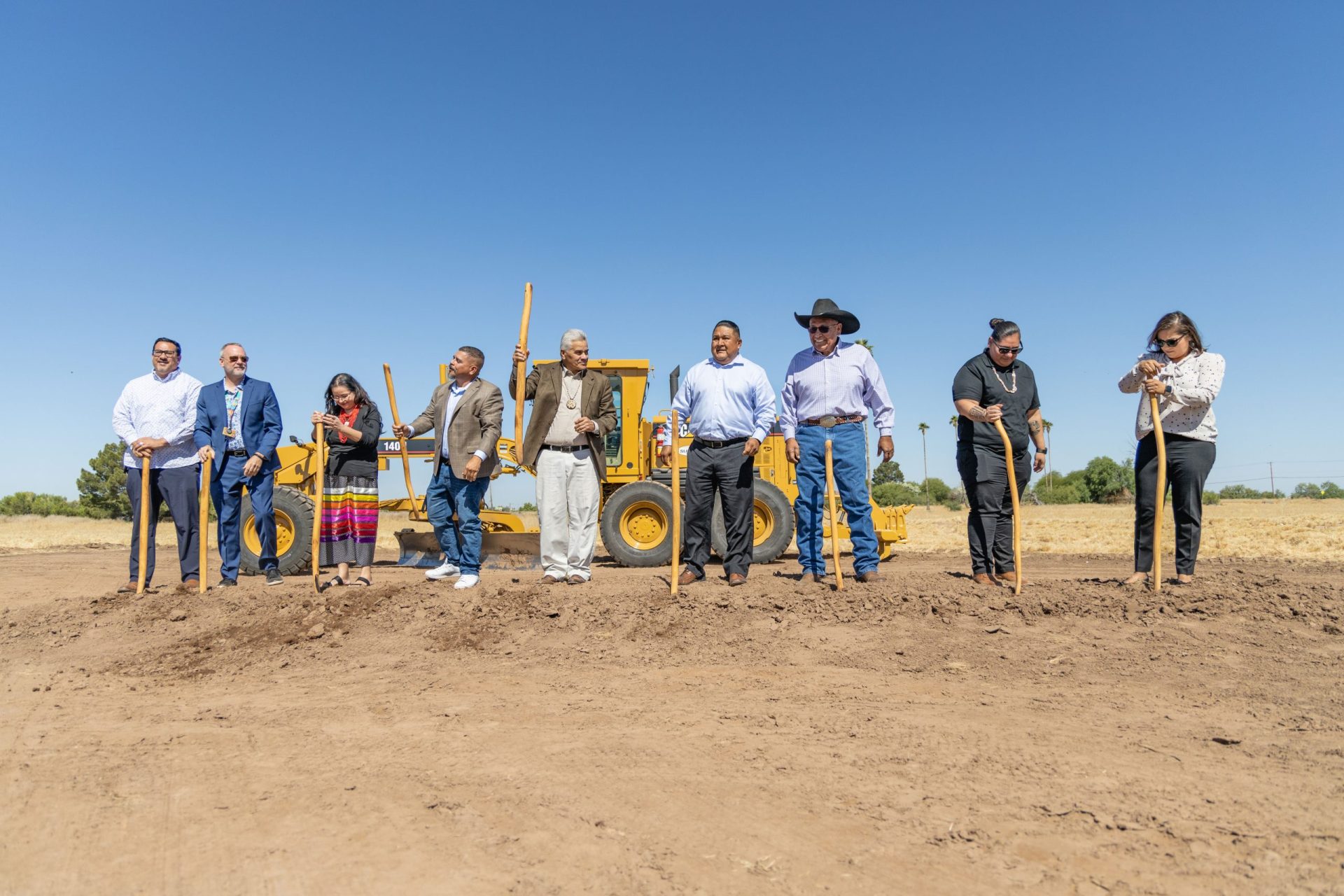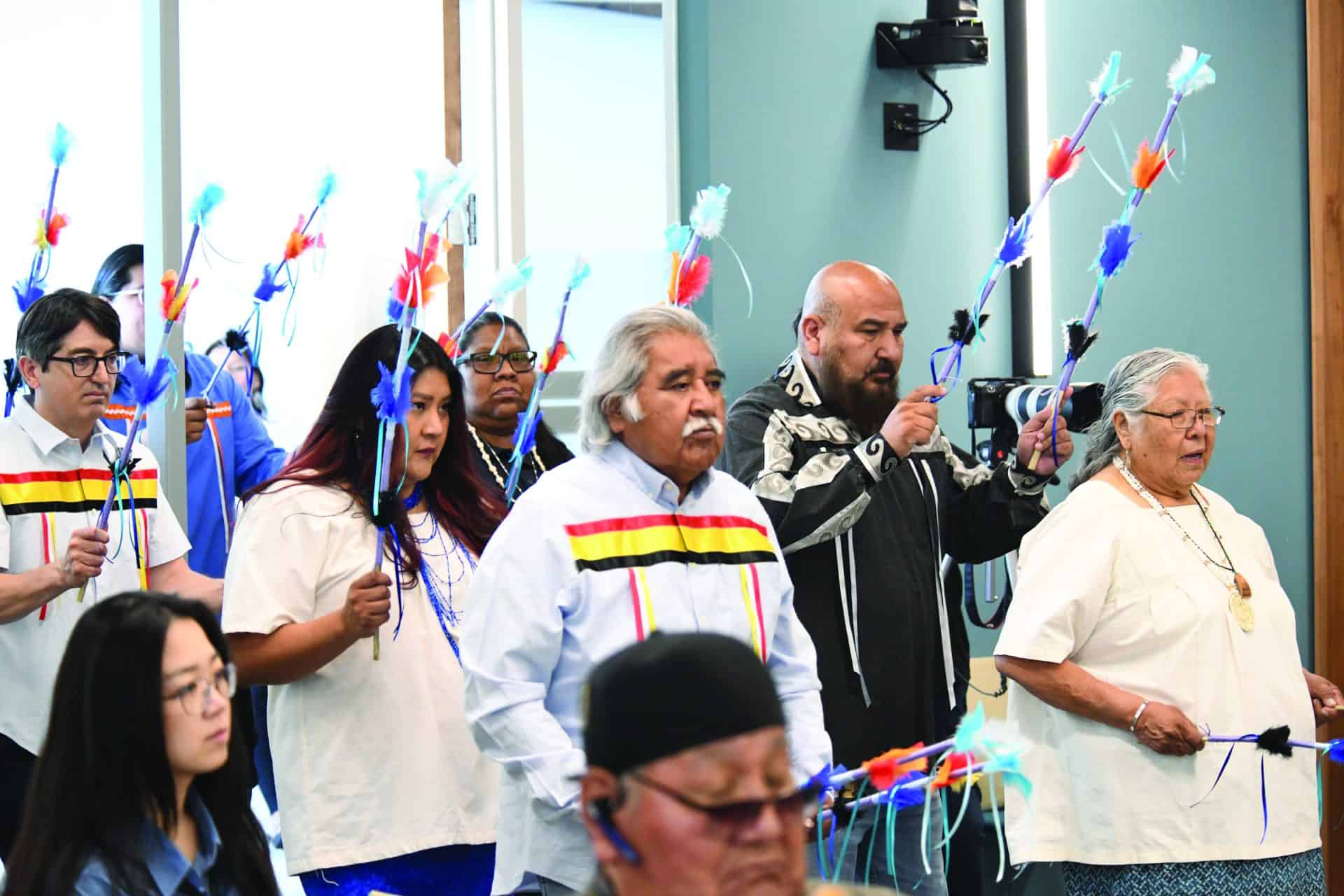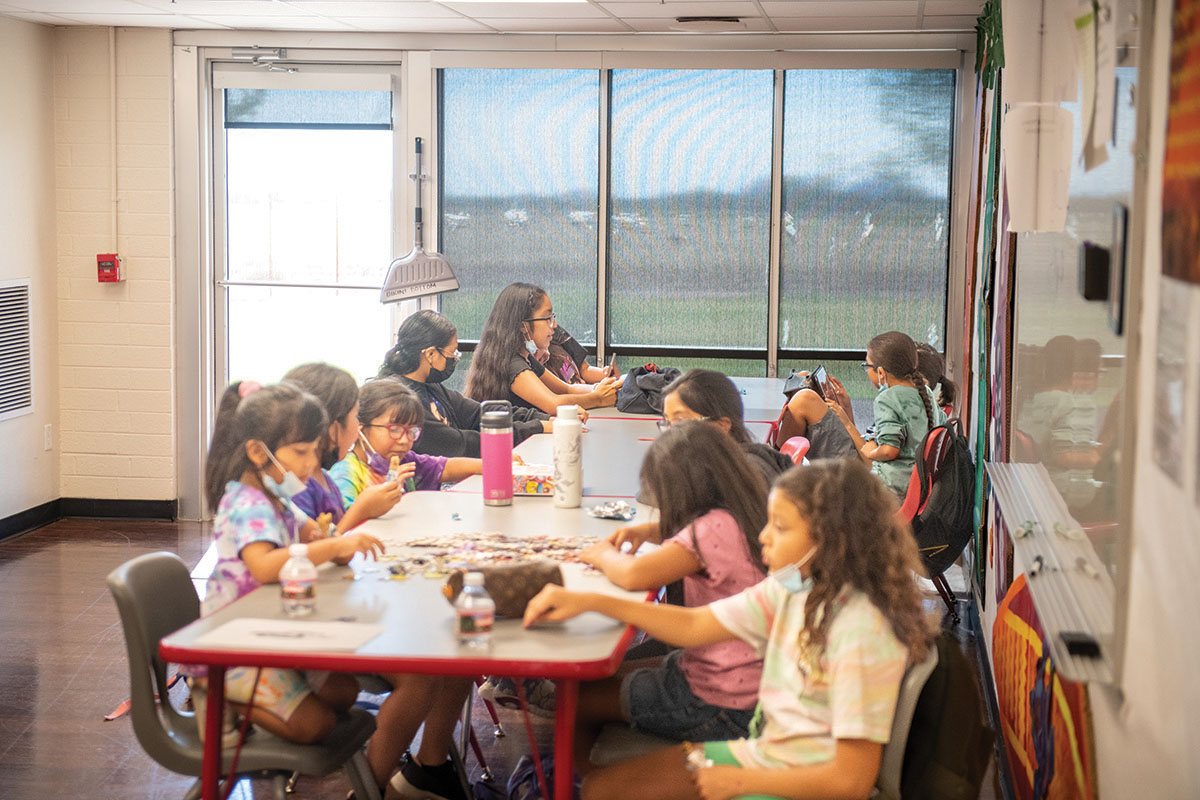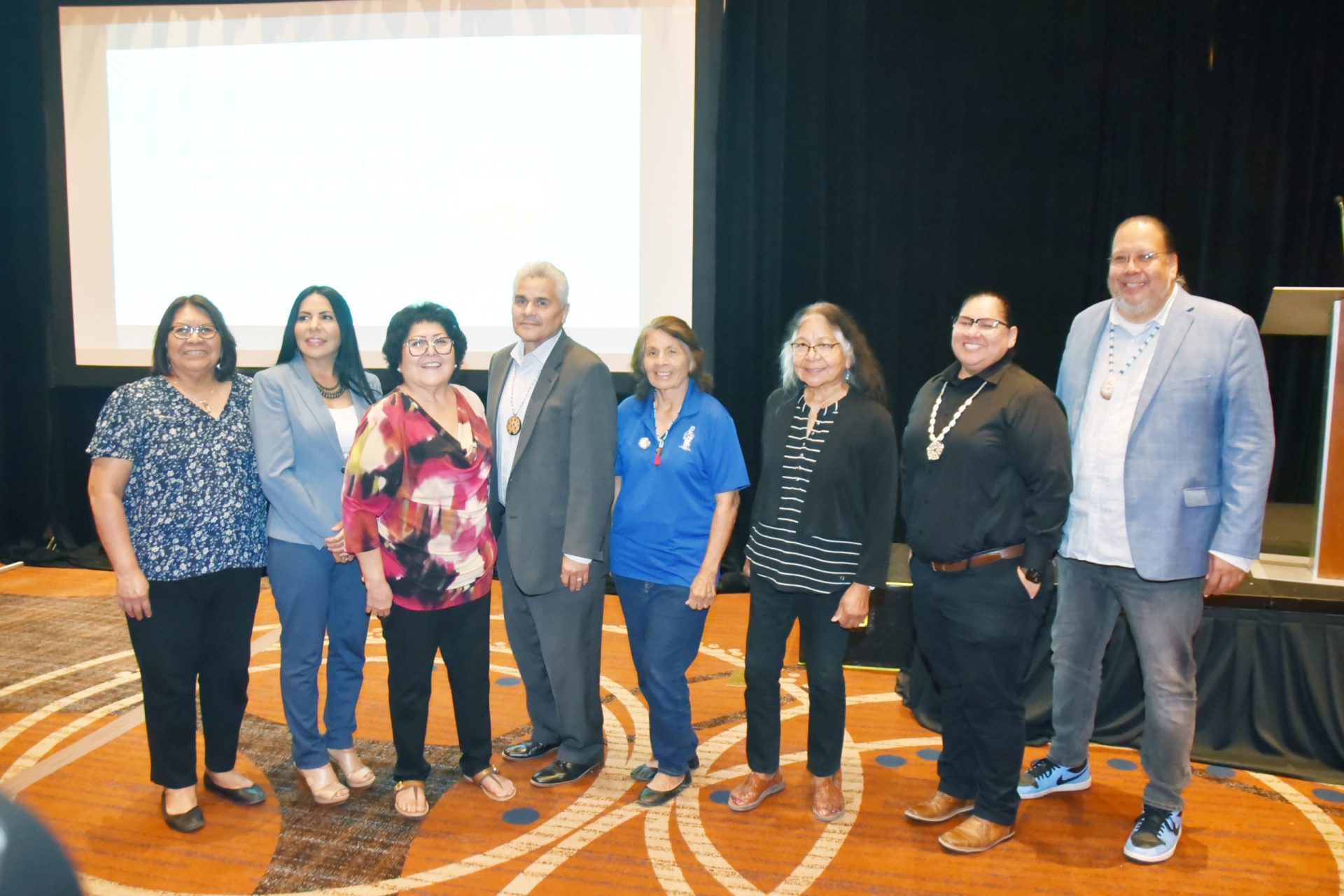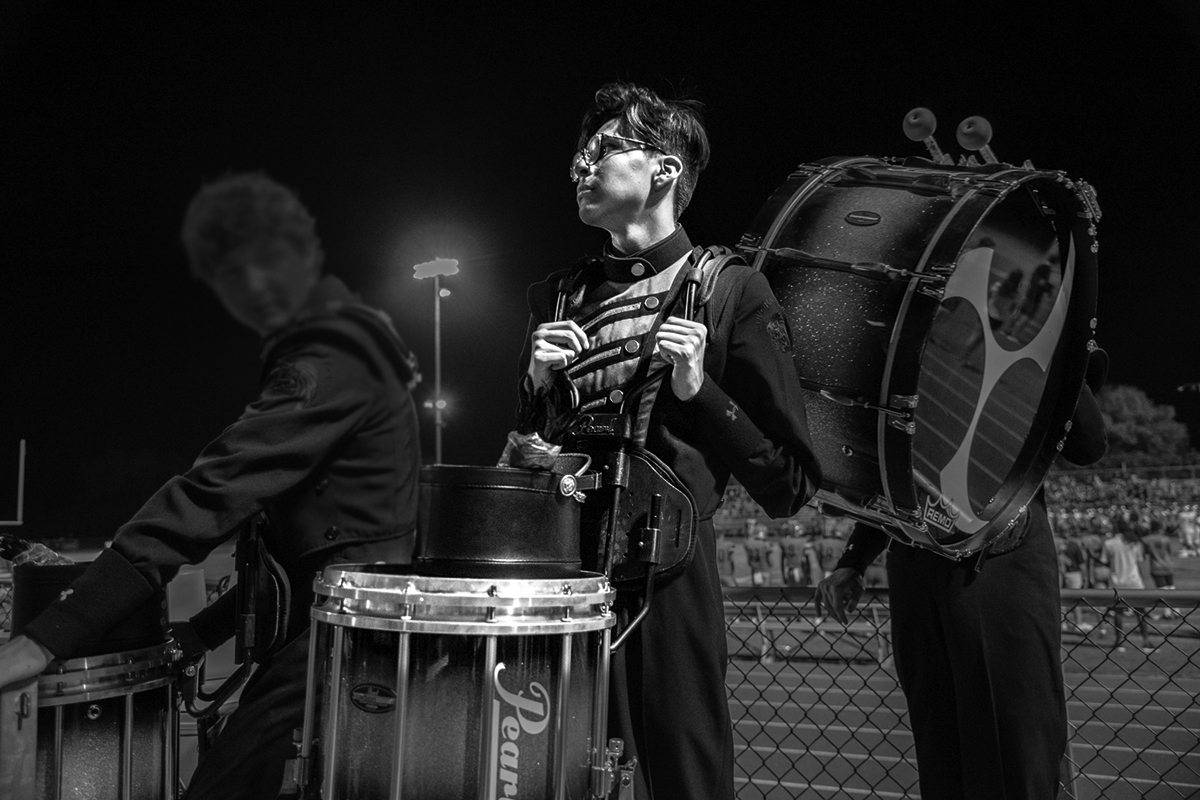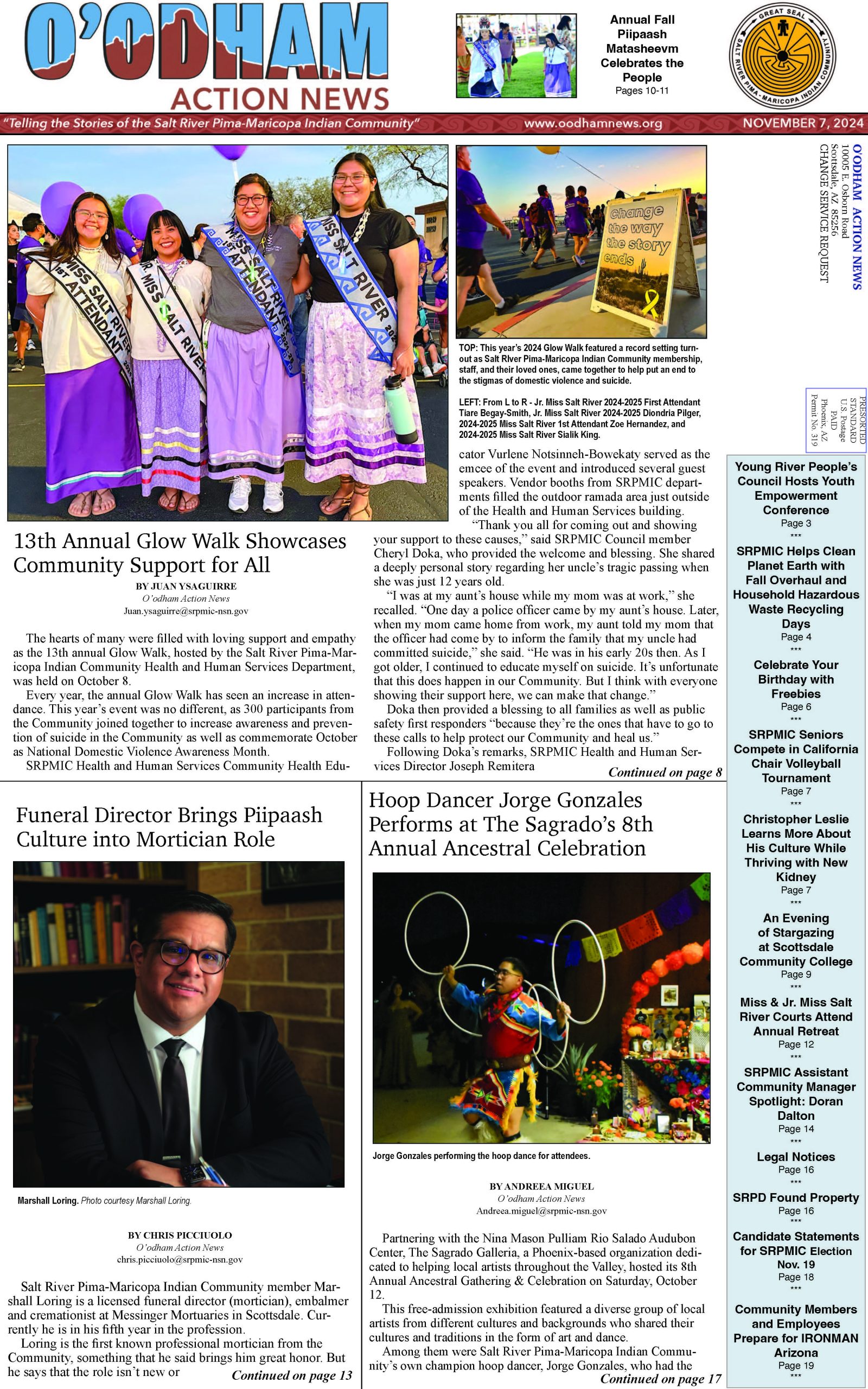VIEWS: 1613
June 2, 2023New Residential Treatment Facility Breaks Ground
A treatment facility with the mission to help people recover from addiction recently broke ground on the Salt River Pima-Maricopa Indian Community. On May 9, SRPMIC leaders, Health and Human Services (HHS) staff and Community members currently in addiction recovery turned over loose soil to usher in the Journey to Recovery treatment facility on a patch of ground just west of the River People Health Center.
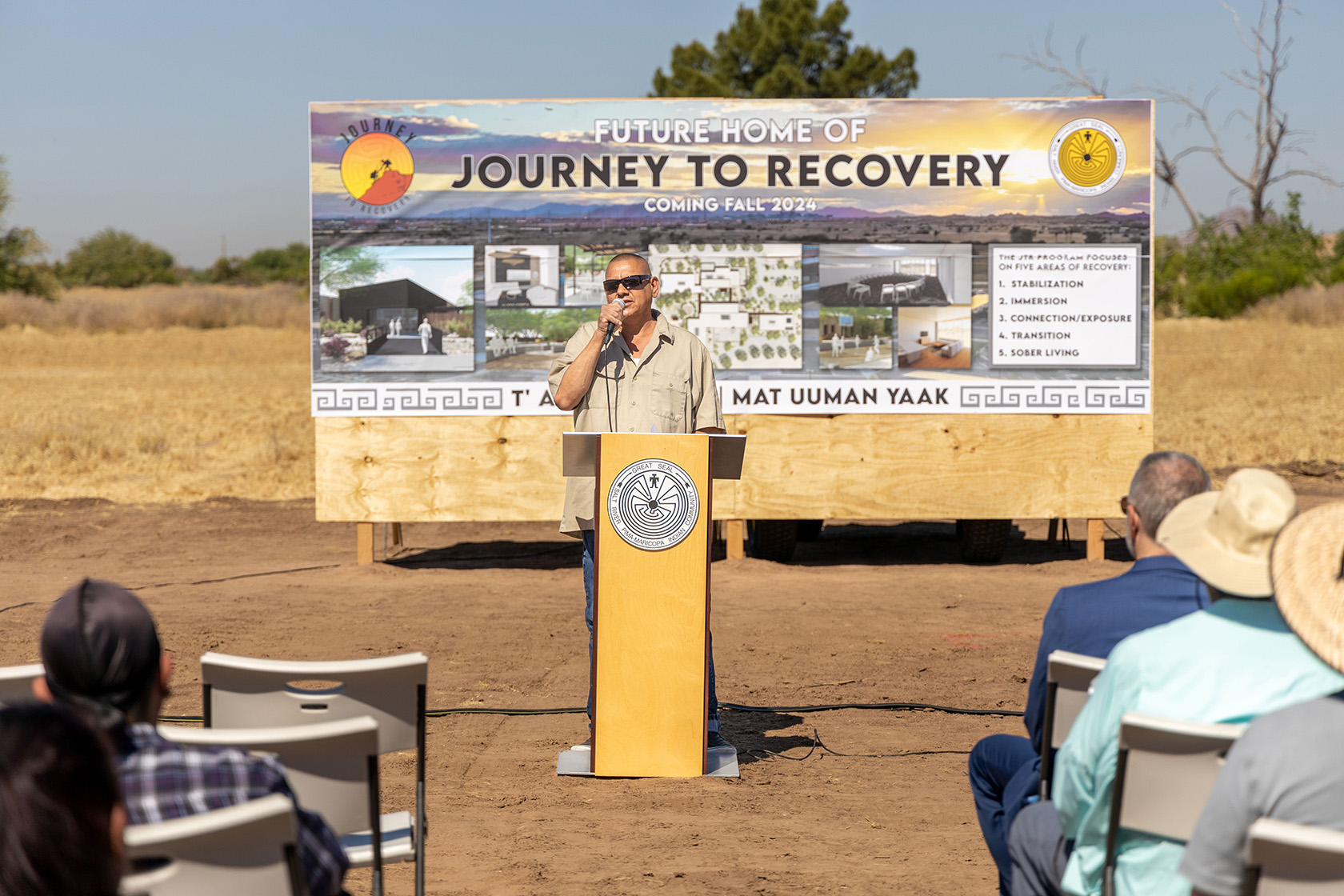
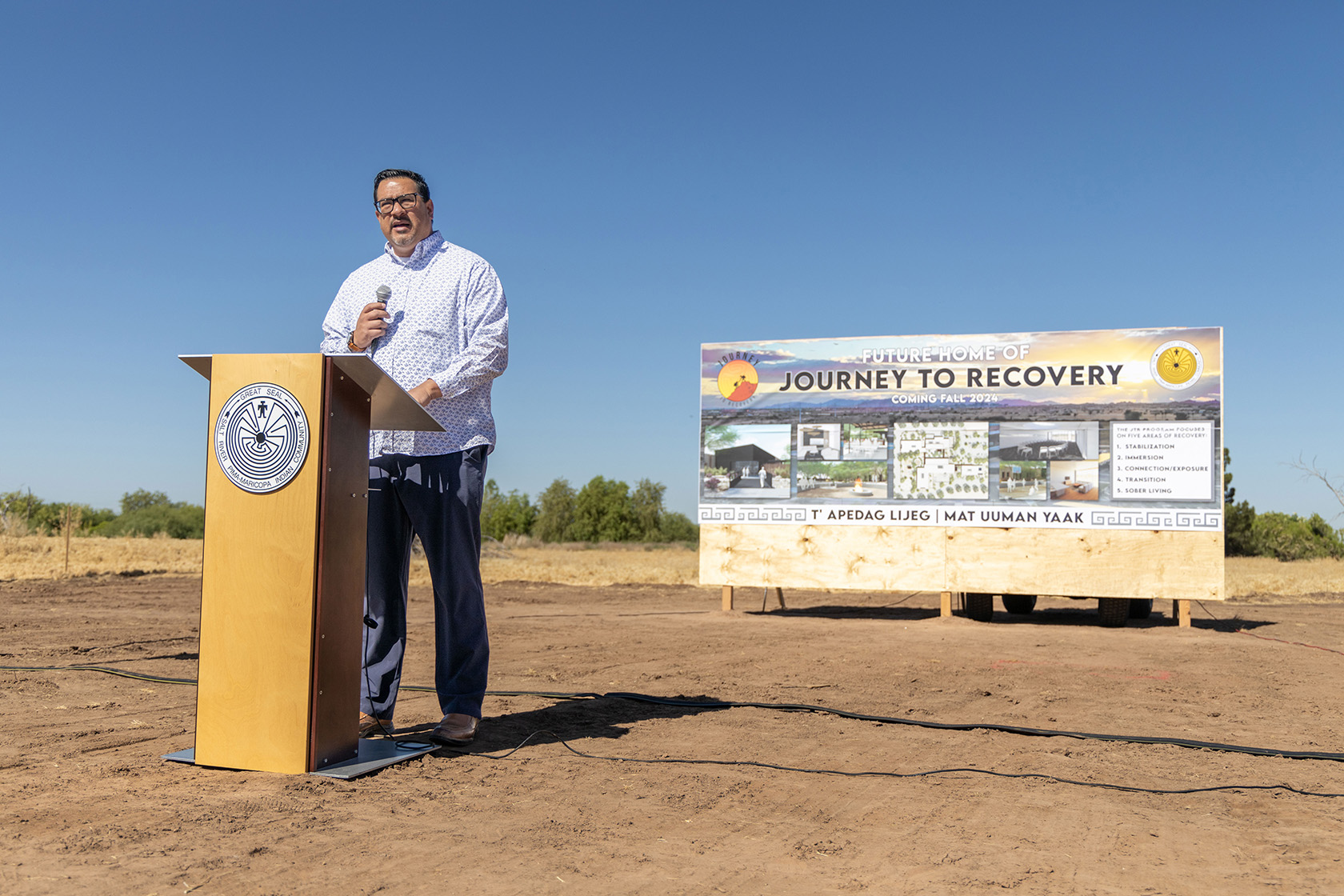
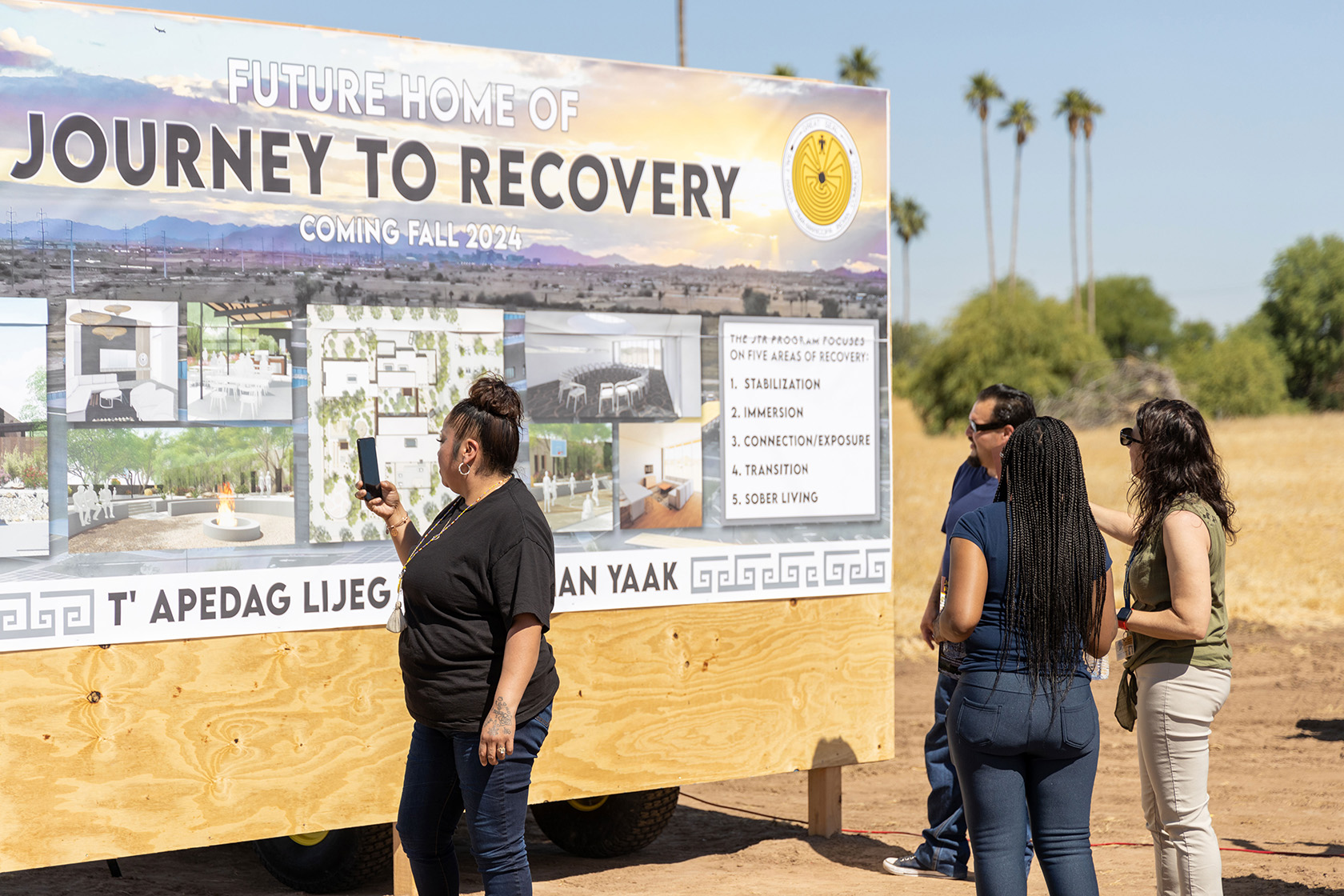
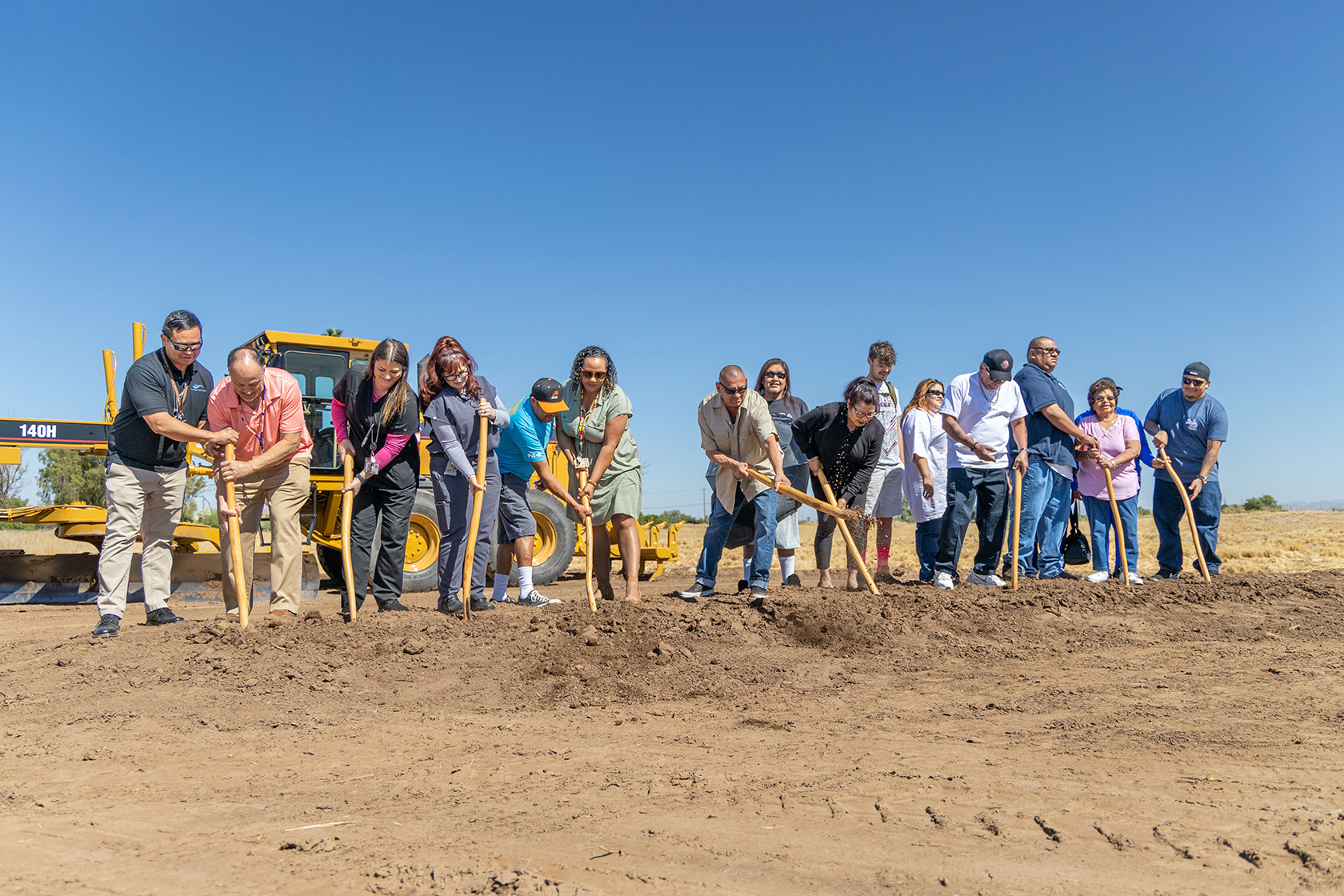
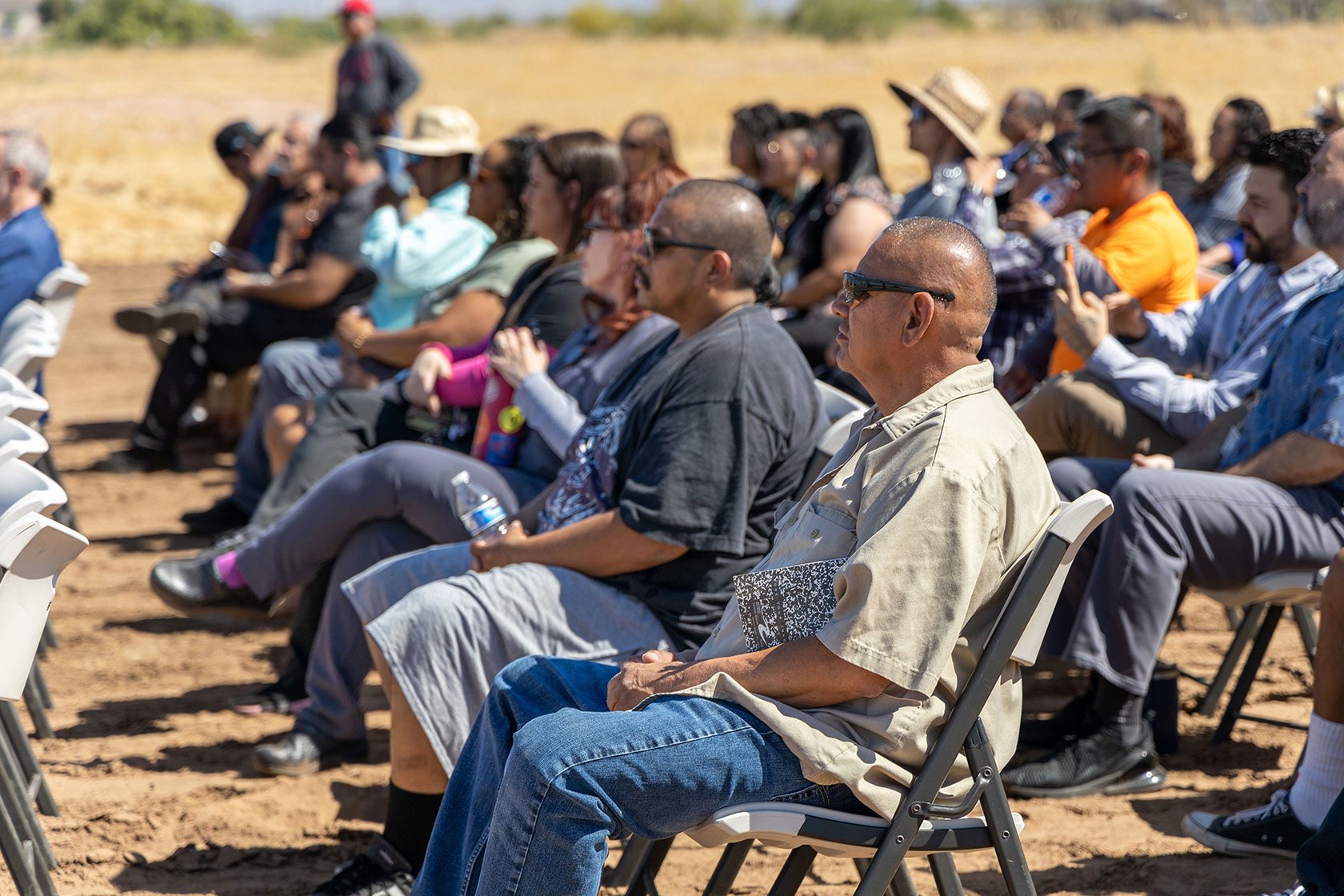
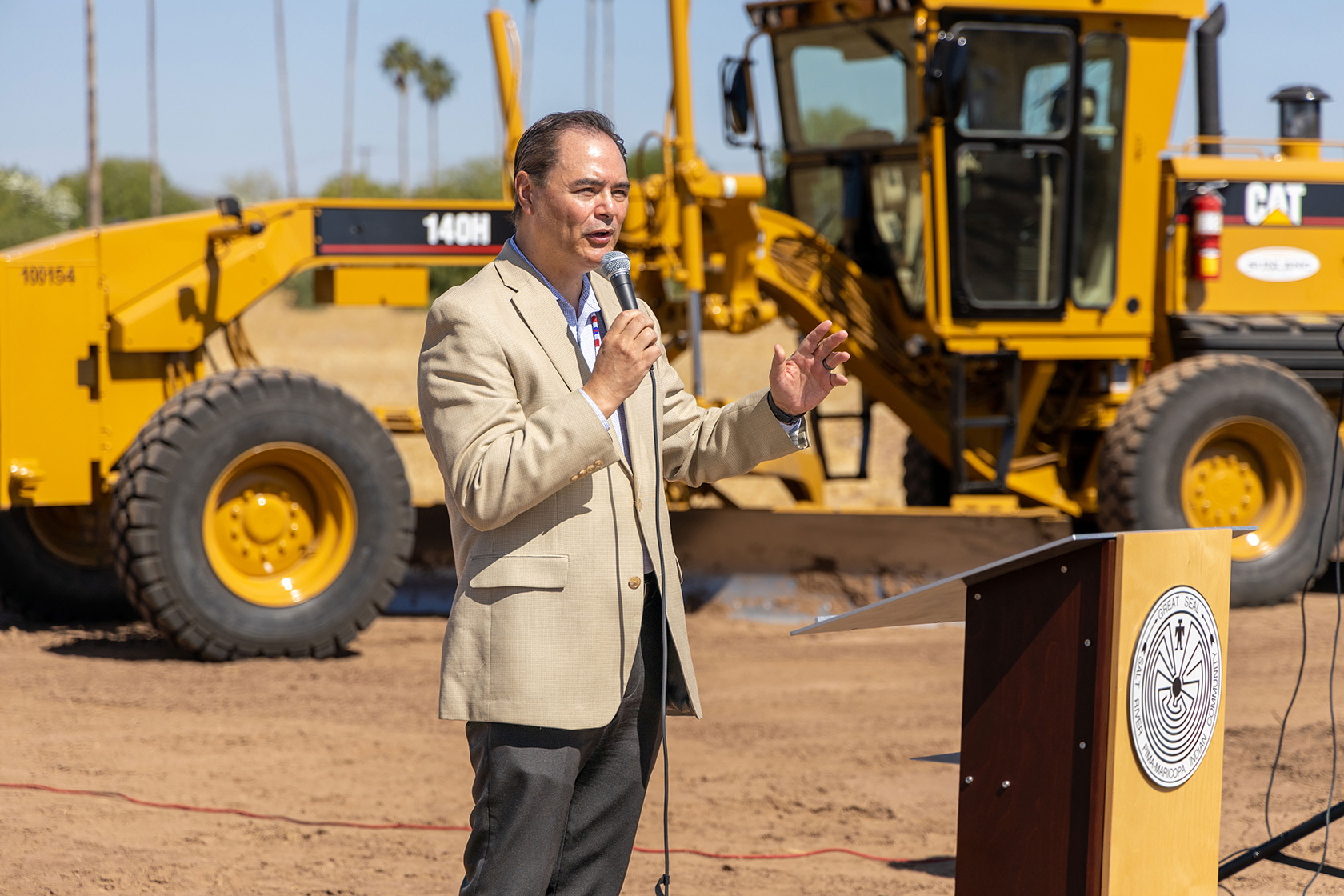
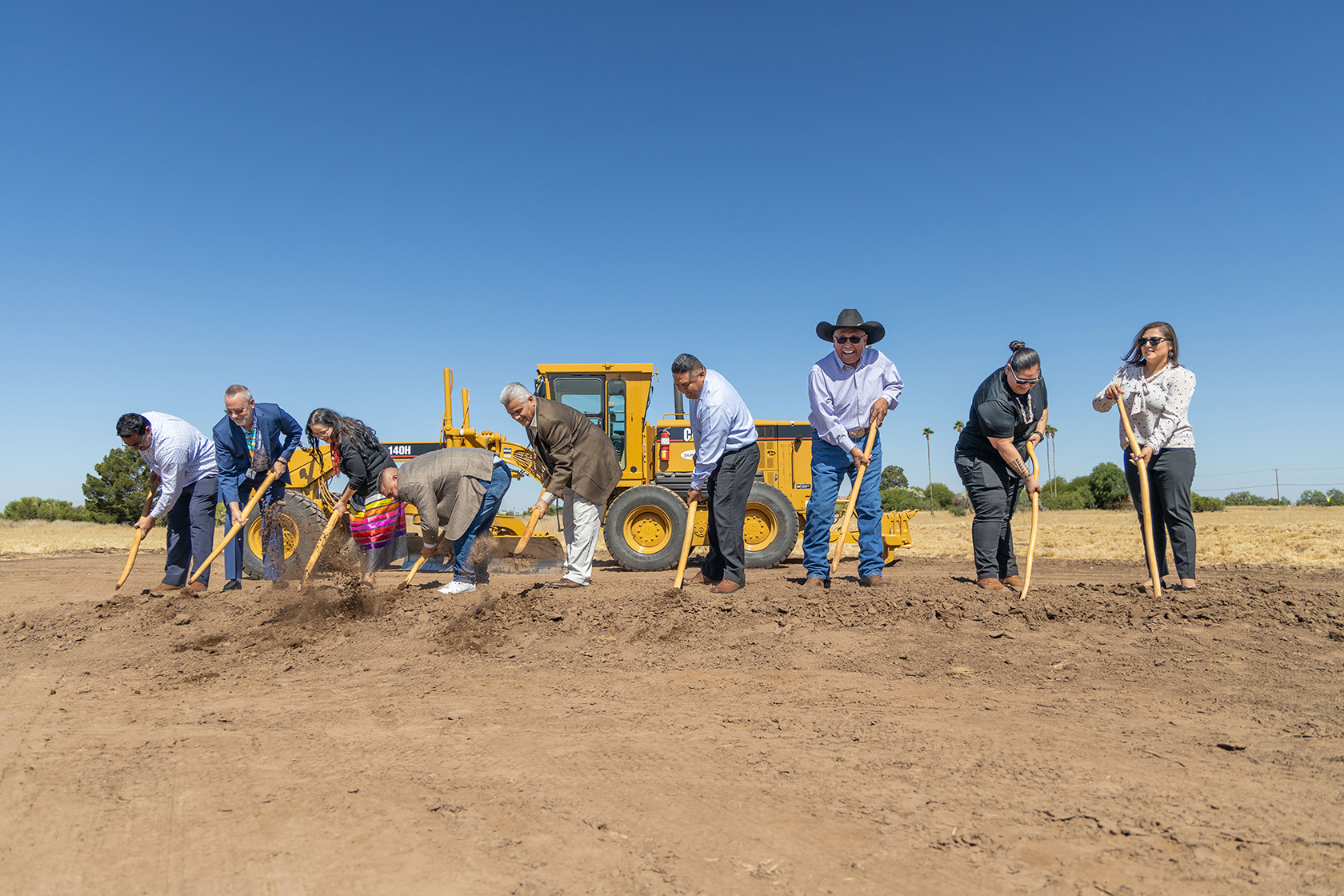
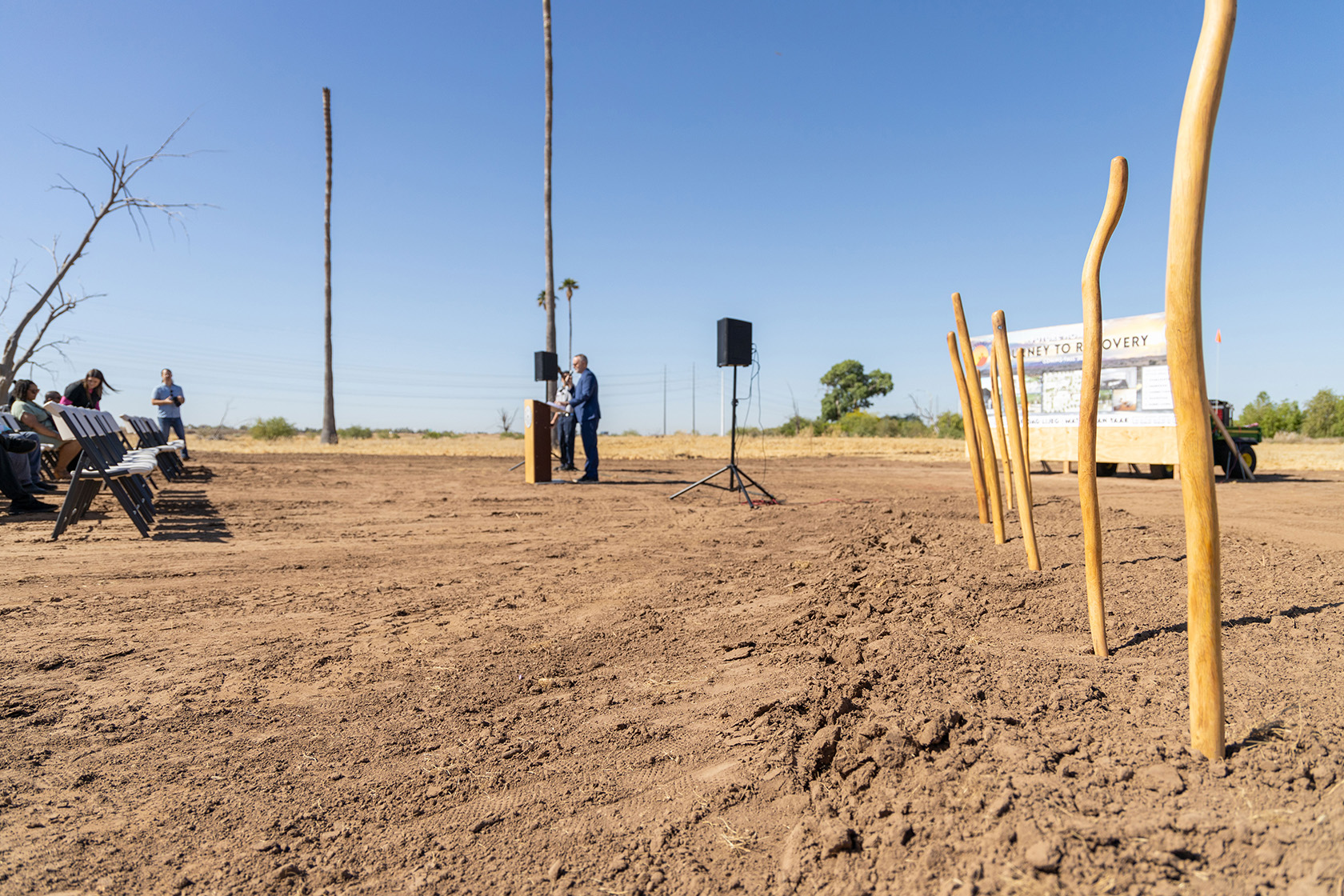
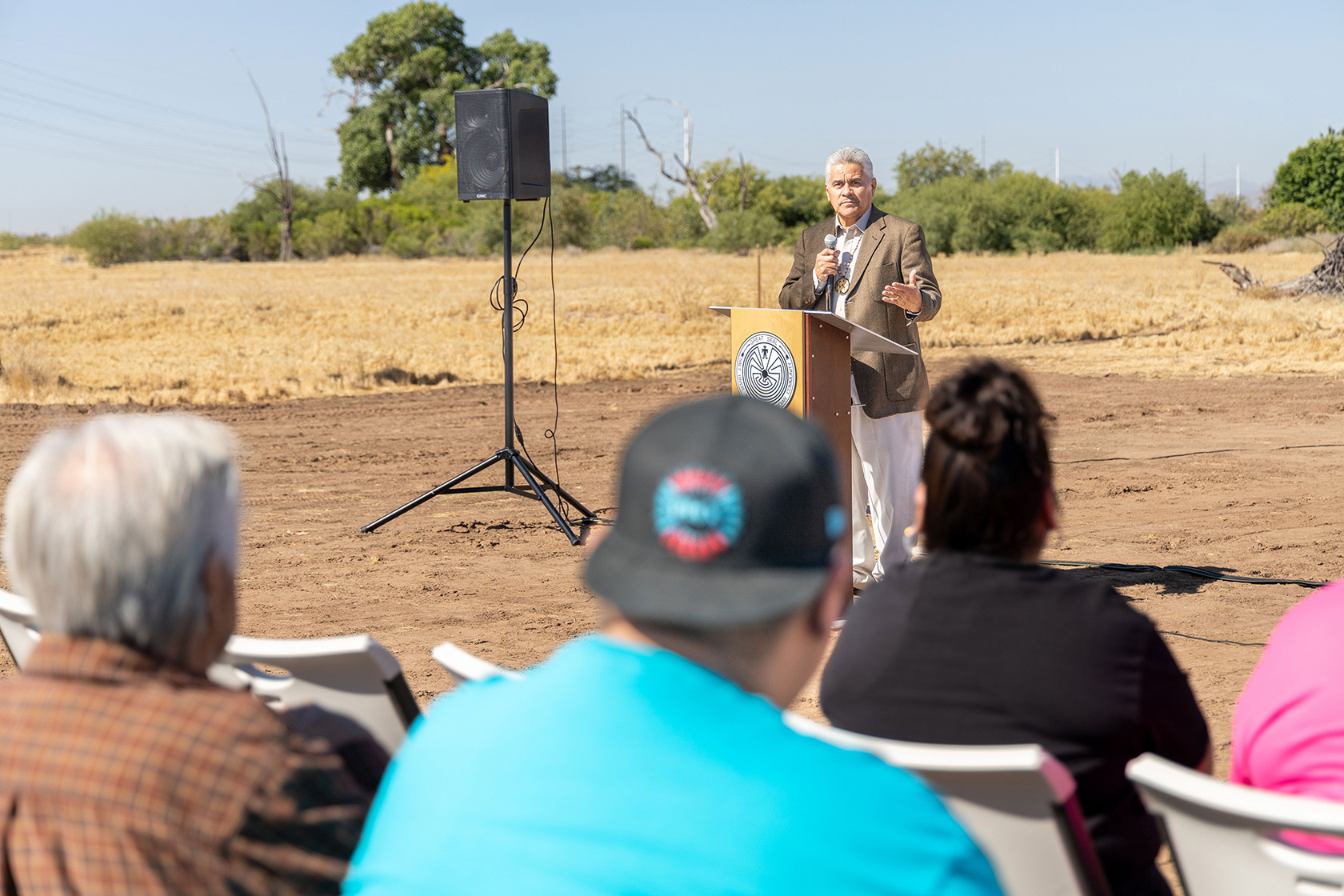
According to information on the project, “The Salt River Pima-Maricopa Indian Community Journey to Recovery project is designed to provide a welcoming ‘home-like’ environment where Community members can receive treatment with privacy and dignity.”
SRPMIC President Martin Harvier opened the event with a prayer and remarks. He recognized the Council members, community manager and assistant community managers present at the groundbreaking.
President Harvier started with an analogy to the Man in the Maze symbol and Elder Brother.
“Like Elder Brother, who sits at the top [the man in the maze] and who goes through life and hits roadblocks, sometimes in people’s lives those roadblocks could be substance abuse or things that are making life difficult,” said Harvier.
He said the new JTR residential facility is meant to help Community members address those issues and not fall back on old harmful ways of dealing with life’s challenges.
President Harvier said, “There are [difficulties] that we are going to have in life, but going forward is how we will deal with them, and that is something we want to have for our Community members … [something] we will look forward to each day, when it comes to healing.”
The treatment facility comprises 50,000 square feet and will house nearly 40 residential beds, 10 detox beds and three crisis stabilization beds for adult men and women. The facility consists of three wings connected by covered walkways.
The construction will be a coordinated effort between the Community; general contractor Au’ Authum Ki Inc.; DLR Group, which is providing the architectural design; and Kitchell Construction.
The three structures will share a central courtyard that includes a recreational yard for residents and staff. The new facility and surrounding area will be designed with environmental sustainability and the residents’ comfort in mind.
Paying homage to traditional structures, some areas will be covered to resemble vatos, which are traditional ramadas made of earthen materials like arrow weed, mesquite and saguaro cactus ribs. The project design is a balance of functionality and cultural heritage that will help Community members feel welcome.
Once in operation, the project will transition into a full-fledged treatment facility offering withdrawal management, residential management, crisis stabilization and a partial-hospitalization program. This includes individual and group counseling and services for non-residents who may receive follow-up treatment in an outpatient building.
Dr. Nate Velez, HHS practice administrator, talked about the work that went into making the JTR project possible. “I want to thank my team, everyone from the front of the office to our peers and our new on-boarding peers, techs and our therapists … without our therapists, we couldn’t do this work,” said Velez.
Velez thanked the leadership team, supervisors and the staff that handle the day-to-day operations of assisting Community members with their treatment. He said the ability to carry out a plan that was conceptualized before his tenure with JTR is a blessing for the Community.
“We’ve come a long way, and when we talk about purpose, I think about the intention and meaning. We consider the purpose in the name of recovery, we think about what that means to many of our loved ones … for the people of the Community, we have an opportunity to restore health and promote recovery.”
Later in the lineup of speakers, SRPMIC member and past JTR patient Timothy Largo offered his thoughts on the new project, adding that the JTR program helped give him the ability and courage to make the change to live a sober life.
“My silver day is May 13, 2022 … another year coming in a few days. I couldn’t have done it without the grace of God,” said Largo. He talked about his recovery from detox to moving onto the JTR recovery program to get his life back on track.
“I am here today to celebrate the new Journey to Recovery,” said Largo. “This is the day we have been waiting for. Without this program, I would not be alive and standing here today to celebrate with you,” said Largo.
To conclude the morning’s events, SRPMIC leadership took up positions behind traditional O’odham digging sticks and turned over the loose dirt to officially break ground on the project. Then, staff and past patients of the JTR program took the sticks and turned the ground.
The new logo for the facility was chosen through an art contest that called for submissions from Community members. SRPMIC member Levi Johnson Sr. created the chosen design. It depicts two individuals on Red Mountain helping one another get to the top. It is a gesture symbolic of the Journey to Recovery mission.

